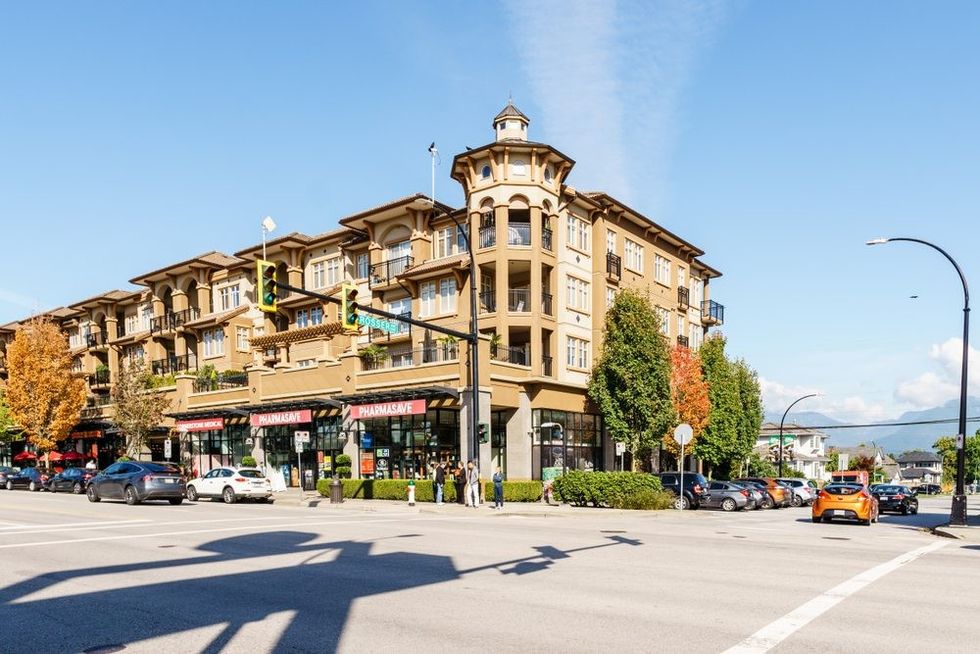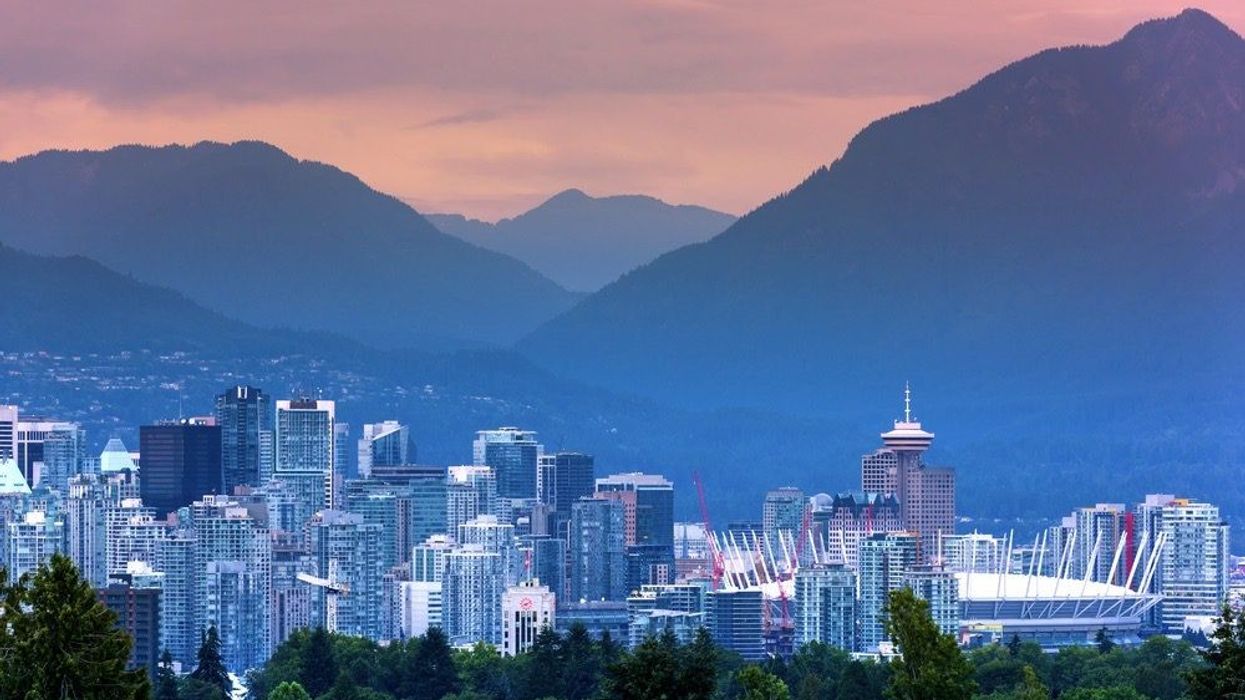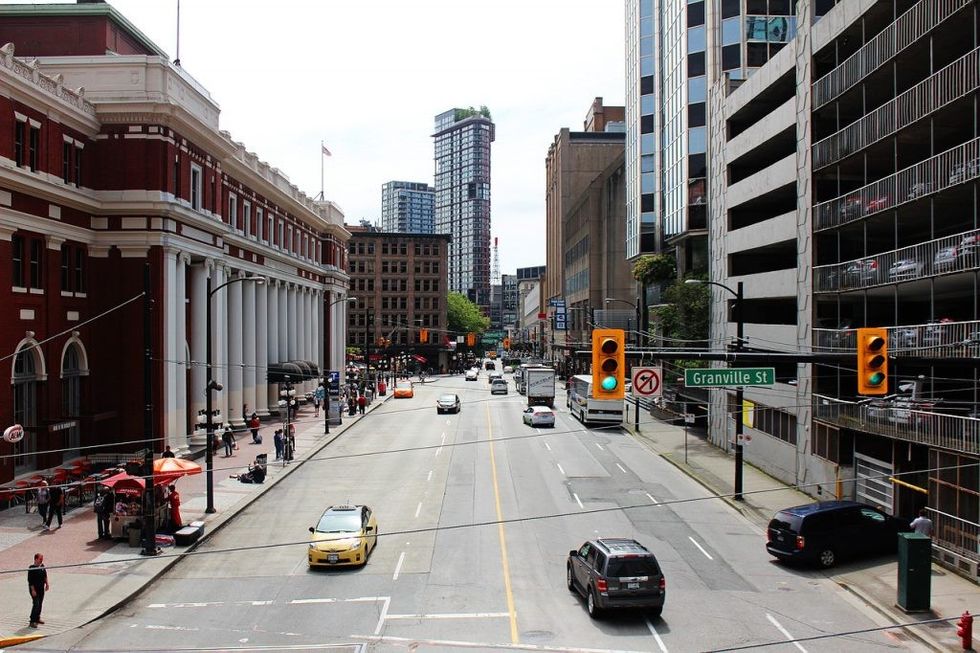Vancouver merchants have long bemoaned property taxes they say are lopsided relative to their residential counterparts, but a new report from Altus Group appears to vindicate them.
The report, using a commercial-to-residential tax ratio, found that, while Vancouver was at 2.30 in 2020, it rose to 3.41 this year -- that’s a 48.3% increase resulting from the rescission of the commercial Education Tax break offered in the wake of the pandemic last year. And according to Phil Gertsman, Executive Vice President Western Region, Property Tax at Altus Group, merchants in Vancouver’s downtown core, where many office towers remain largely vacant, are languishing, adding that their elevated tax rate is just another spanner in the works.
“It’s a little bit misleading in a sense, but if the report had gone back to 2019, you’d have seen a high ratio in 2019, a low ratio in 2020 because the provincial government in BC provided COVID relief, and it’s high again in 2021,” Gertsman said. “Office buildings have been partially emptied out, and even as people come back to the core, they’re coming back at a relatively slow pace and all the retail that supports downtown core workers are really suffering. Many of these businesses didn’t make it.”
Businesses located in the city’s suburbs are faring somewhat better than the ones in the urban core because remote workers are shopping locally, but even those enterprises are taxed to the hilt and buckling. Gertsman says municipalities are spending well beyond the rate of inflation and merchants are, consequently, on the precipice.
“Businesses were getting pushed to the limit, and then when the pandemic hit they didn’t have much fat to see them through the crisis, so what was just a business challenge before has really become life and death,” he said. “The larger businesses perhaps have stronger balance sheets because national franchises tend to pull through, but a lot of mom and pops we’ve seen become casualties. For food and beverage businesses, if they did takeout they survived, but if they didn’t they had a tough time. This is about the seemingly endless appetite for cities to raise their spending, and of course the pandemic hit some of their revenues, so they’re continually raising taxes. The provincial government lowered taxes last year but municipalities actually raised them and, as a result, we lost a lot of small businesses.”
Patricia Barners, Executive Director of the Hastings North Business Development Association (BIA), has, for years, led the charge against what she says are unfair levies on businesses. Barnes has lobbied against unequal property tax imposition on commercial properties -- and landlords pass on the buck(s) to tenants -- a structure she calls deliberate. Moreover, businesses are only permitted to write off taxes if they turn a profit, not if they’re in the red as one might reasonably presume.
“[Residents] represent 93% of the tax base and they pay less than 50% of taxes in Vancouver. Businesses pay the lion’s share of taxes and we don’t use the majority of the services. We actually subsidize services for residents,” Barnes said. “The argument can be made that we can write things off, but you have to make a profit to write things off. The situation we’re in is a small tax base pays the majority of property taxes, and we have triple-net leases so that the tax is passed onto commercial tenants, and it’s tough to make a go of it.”
Curiously, if a property, while only single-storeyed, is zoned for, say, four floors, the property tax paid by the tenant is for the non-existent additional storeys because the city’s land assessment calculation is predicated on best and highest use. But, as Barnes describes it, merchants are paying property taxes on air.
“Until it is developed, the property owner, and thereby the business, is paying tax on air at a 4:1 ratio,” she said. “We also have a School Tax, a Vacancy Tax, and all sorts of things that get applied to empty air, and this is where we say it’s not affordable. Many neighbourhoods out of the downtown core are single-storey and businesses, if you tax them at those rates, are forced out. We need housing and development potential, but if we then had a property owner, many of whom are small, who sells to a big development company, there will be at least three years of, first, demolition, then the construction process. We’d see an erosion of our independent small businesses.”
Barnes says, fortunately, her BIA is just east of the downtown core in a mostly residential neighbourhood bordering Burnaby, so there’s an “extremely loyal residential community that shopped local during the pandemic and we haven’t lost many businesses,” but there has been some turnover. Fortunately, she again says, other businesses have filled those vacancies.

“But experts say it will take five years to get back to the 2019 level of economic development and recovery, and we know a lot of our businesses have taken on a huge burden of debt and are now facing supply chain and staffing concerns, as well as some [COVID-related] restrictions,” Barnes said. “We’re not sure where this pandemic is going; a lot of businesses are competing with online retailers. There’s a lot on the horizon, so the next six months to a year will certainly tell the tale of where we’re going to land when we look at our turnover vacancy.”
Gertsman says BC has up-to-date property tax assessments, the efficacy of which gradually deteriorates east of Alberta and plummets in Ontario and Quebec -- at 4.17, Montreal has the worst ratio of the 11 major cities analysed in the report -- but that doesn’t explain why commercial property tax rates are higher than residential tax rates. However, he has a theory.
“Residents vote, businesses don’t. Politicians just focus on the voting impact, and they consistently tend to go after the easier target, which is the commercial tax base. They don’t have the courage to more equitably allocate taxes between commercial and residential.”






















